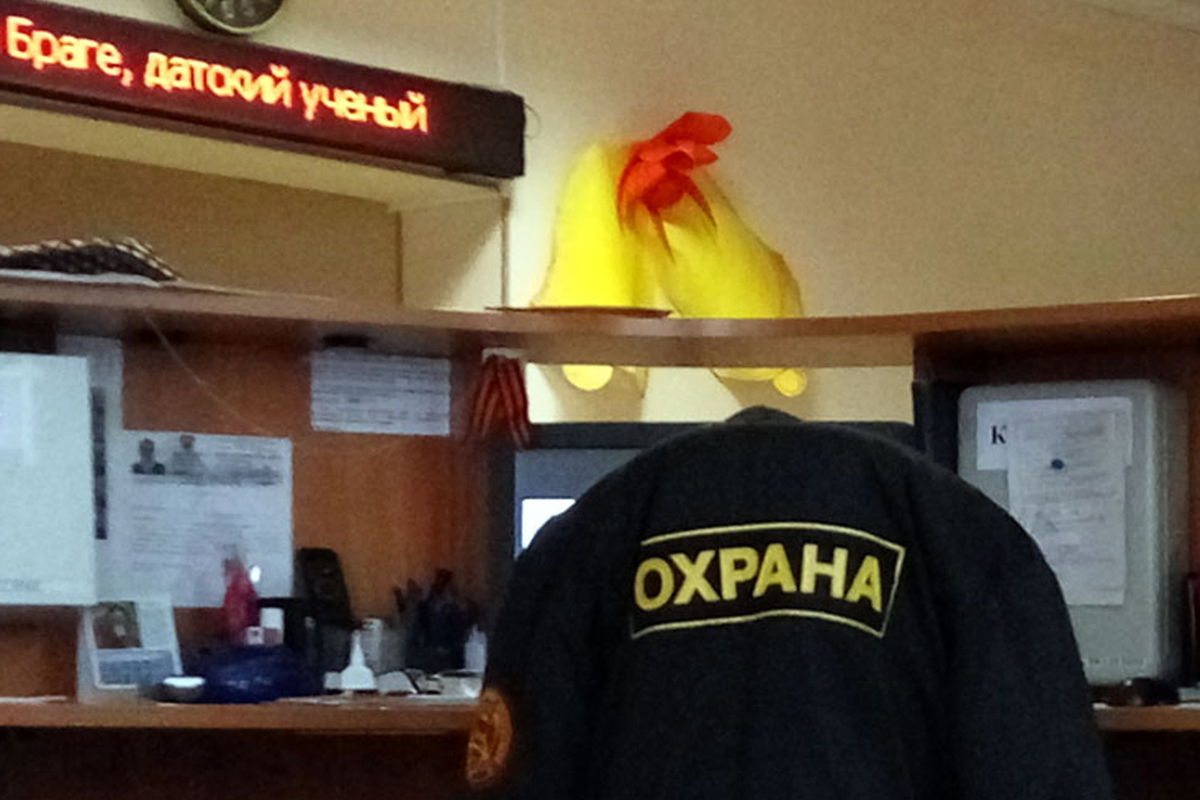The State Duma proposed entrusting the Russian Guard with the protection of schools, colleges and kindergartens: private security companies are ineffective
[ad_1]

A new bill on the protection of schools, technical schools and kindergartens by the Russian Guard was introduced on December 20 to the State Duma. They say that since, as a result of repeated attacks on educational institutions by teenagers with weapons, private security companies have shown their ineffectiveness, the protection of children should be entrusted to the troops of the country’s national guard.
One of the authors of the bill, Just Russia Sergei Mironov, spoke about the new initiative: “Numerous incidents in Russian schools, which often end in the death of children, require the adoption of strict measures to protect schoolchildren and teachers.”
My party colleague was supported by the first deputy of the Duma Committee on Education, Yana Lantratova, who commented on the need for a new legislative initiative for MK:
– The tragedies of recent years in schools have shown that, first of all, it is necessary to entrust the security of educational institutions to people with special training. How many more children must die in order for funds to be found in the budget for their safety? Children should be protected by armed professionals, and not by a red button that they don’t always even have time to press. Precious minutes while waiting for a rapid response team can cost dozens of lives.
Deputies draw attention to the fact that schools and colleges often hire security guards of “pre-retirement and retirement age” to save money. Or they even make a substitution: on paper, the employees “appear as licensed security guards.” But in fact, who knows. Indeed, the reality of schools is such that most often either working pensioners or migrants sit at the entrance.
In addition to transferring the security functions of schools and other educational institutions to the Russian National Guard, the head of the Just Russian Federation proposed introducing a unified security standard for schools, which should be equipped not only with a panic button, but with “a set of engineering and technical means and systems.”
And the employee also has to sit at the entrance for a reason. And to have with you “the entire arsenal of necessary means to neutralize the criminal.” Including “lethal and non-lethal weapons.” That is, both small arms and a baton with a stun gun, presumably. The security guard “must have the skills to use (weapons).” Therefore, it is “absolutely obvious” that protecting the peace and lives of children and adolescents “can only be done by a specialized agency – employees of the National Guard.”
The bill on the protection of schools by the Russian National Guard has already found support in the upper house of parliament. “Private security companies have shown their inability to protect children’s educational institutions,” says Elena Perminova, head of the Federation Council Committee on Social Policy.
However, even superficial calculations show that the idea of involving the Russian Guard in protecting schools is quite utopian. The number of personnel of the Russian Guard today is 340 thousand. And we have 46 thousand schools in Russia alone, almost 4 thousand more colleges (technical schools and schools), and also kindergartens… It turns out that there are hardly enough guardsmen to fill these institutions. But the security forces also need to deal with their main activities: fighting terrorism and illegal arms trafficking, protecting state interests.
The second question that suggests itself is the price. Our schools are self-supporting, and private security companies and grandmothers-watchmen work under a contract. MK found prices for security services from the Russian Guard at commercial rates.
“The power of the Russian Guard (as it is called on the website) at the Premium tariff will cost the customer 8 thousand rubles per month, plus equipment for almost 15 thousand. The conclusion is that the “new standard of safety” in schools needs to be subsidized. But regional budgets have already been planned for three years in advance. And it’s hard to imagine such expenses on security even in a rural school somewhere.
“MK” asked these questions to Sergei Mironov and received the following answer:
“The new authority of the National Guard can be exercised, among other things, through the units of the Private Security Forces of the National Guard. Its territorial divisions operate in all federal districts, in every subject of the Russian Federation. However, obviously, if the bill is adopted, their staff should be increased.
According to the financial and economic justification for the bill, additional funding costs from the federal budget will amount to approximately 592.4 billion annually. It’s a lot of money, but today the issue of ensuring the safety of children and teenagers is very urgent, and the state must do everything possible to solve this problem.”
Of course, school security needs to be strengthened. But wouldn’t a “man with a gun,” and also with a stun gun and a rubber baton, also be a source of danger at a school or technical school? Teenagers can be cocky and love to show off. And the National Guard, in turn, are not used to standing on ceremony with troublemakers.
“The solution, it seems to me, may be to replenish the personnel of the Russian Guard with female employees,” says retired police major Elena Alexandrova. “It’s not for nothing that inspectors working with minors are more often women. In supervision and prevention, we came to this with experience, because when working with teenagers you need calm and tact. In the police, women work as operatives, analysts, and go on patrols. What I’m asking is whether they can stop crime. As much as they can. In Russia, about a third of police officers are women. Perhaps the Russian Guard should also follow this path. Now, as far as I know, there are few female staff there, less than 15% of women serve.
[ad_2]
Source link








